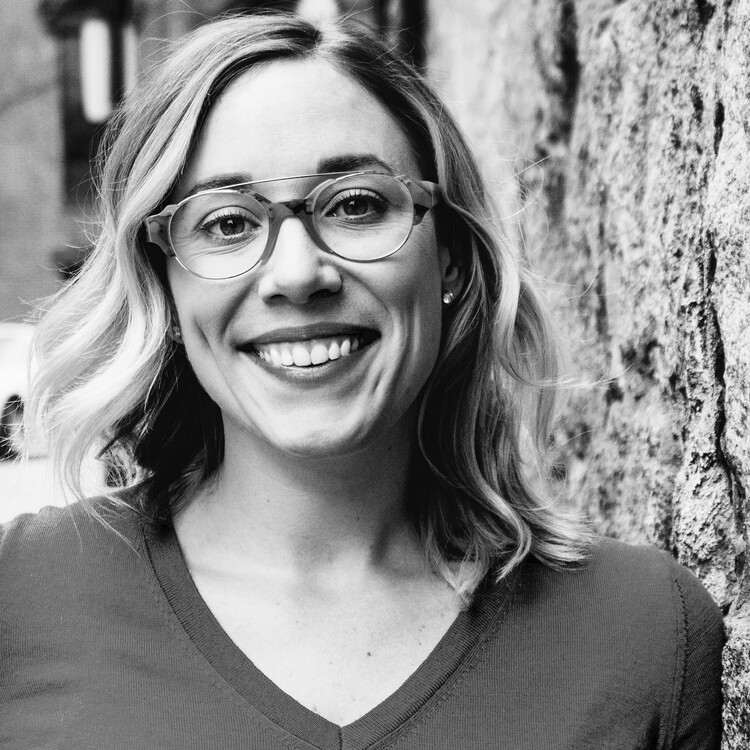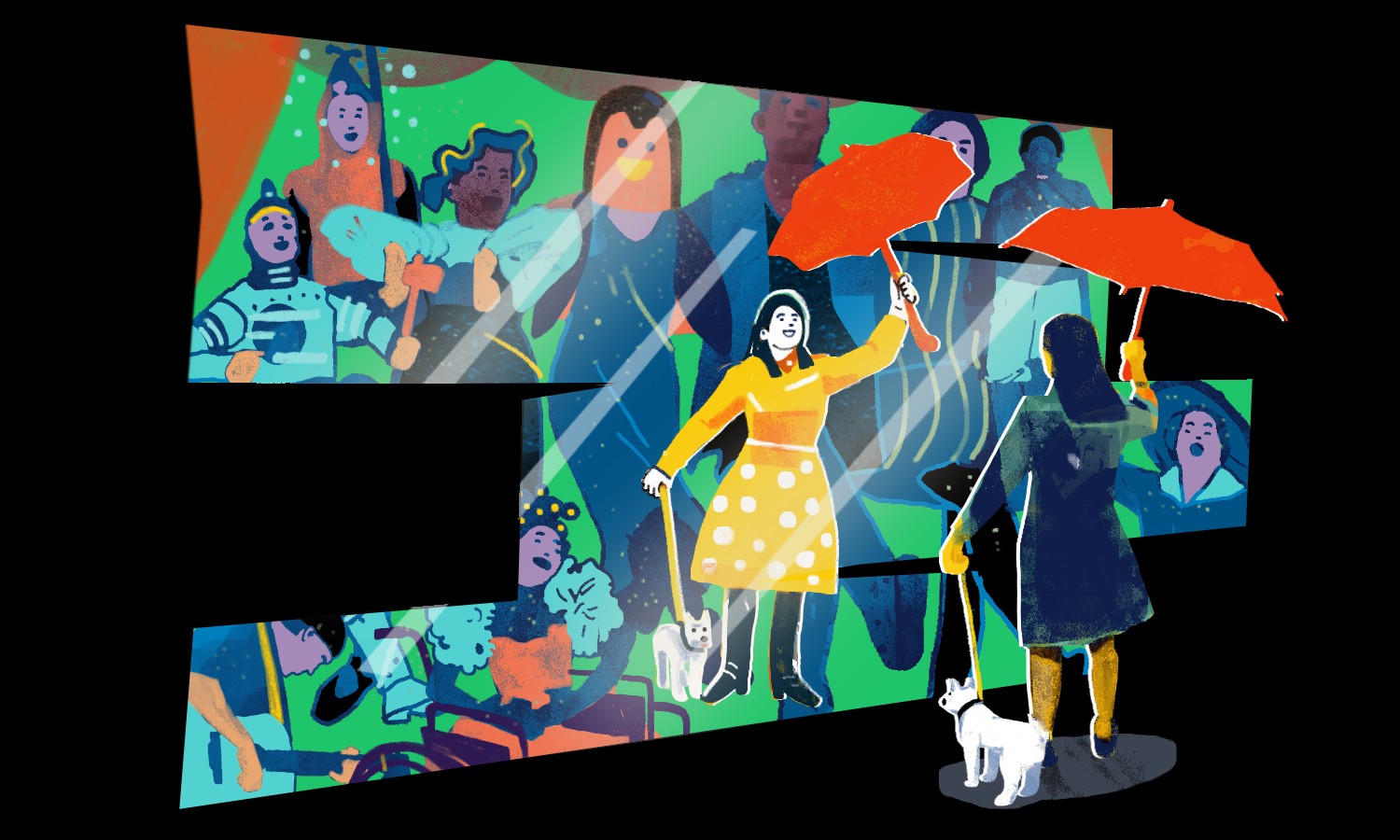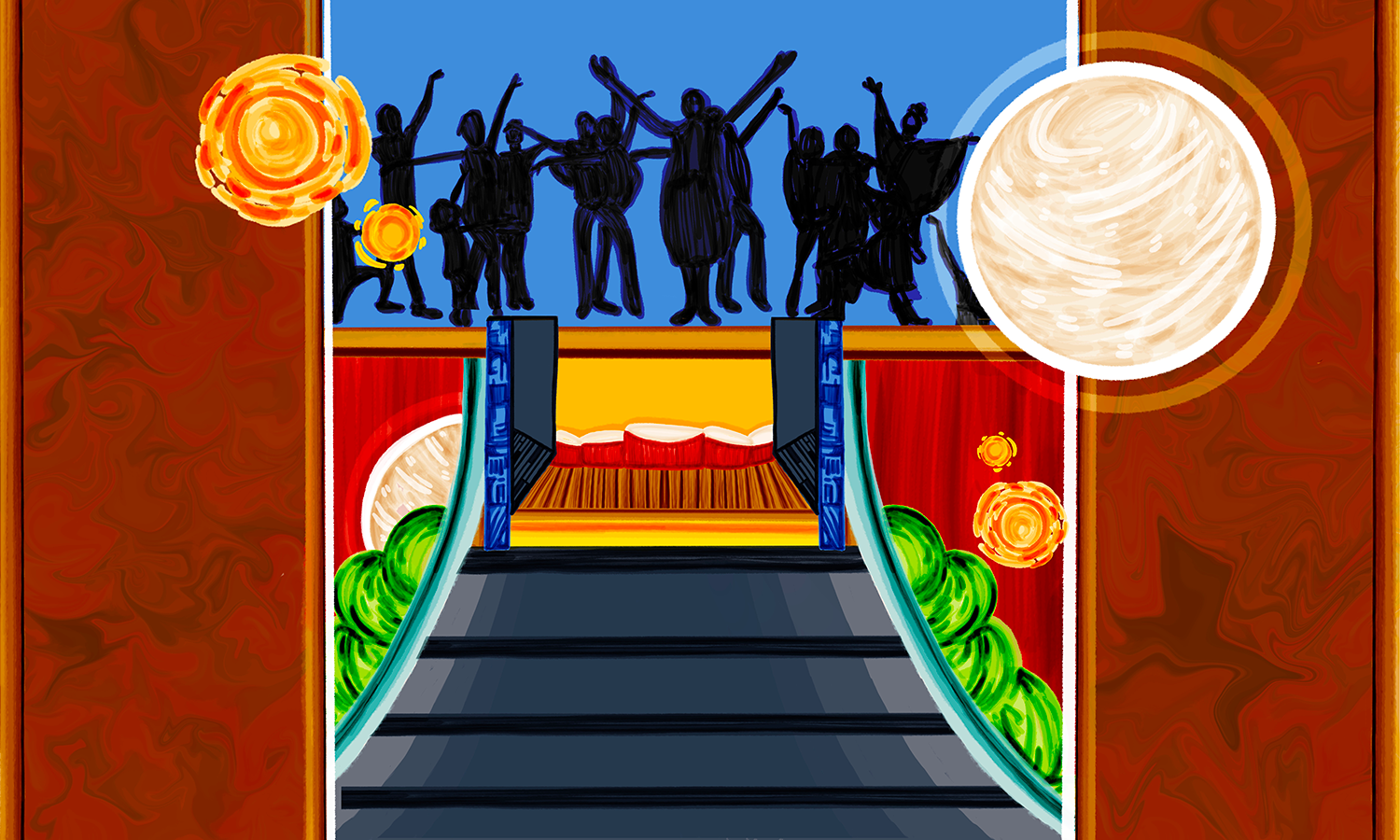We set to work, “building the plane while flying it” in the words of co-founder David Dower, doing our best to design a platform rooted at once in the utopian ideal of the commons, which holds culture as inalienable, and the daily acts of sharing and collective stewardship that animate the HowlRound knowledge commons and instill values based on anti-oppression, collaboration, egalitarianism, horizontalism, and participation. Today, through curating progressive audio, video, and written content, modeling commoning, and connecting theatremakers around the globe, HowlRound seeks to make progressive ideas mainstream, increase equity, and spread commons-based behaviors in the theatre field. It’s hard to believe it’s been a decade—it feels like both a lifetime and the blink of an eye. Ten years in, while we certainly know a lot more than when we started, we’re still learning, failing forward, and evolving—we’re a continual work in progress, much like our beloved theatre field.
Over the last eleven months of the COVID-19 enforced pause and ongoing racial reckoning in the nonprofit theatre field, a lot has been said about the future. Some call for a return to “normalcy,” while others seek to make the field anew. Oft-quoted author and activist Arundhati Roy says to think of “the pandemic as a portal, a gateway between one world and the next,” and asks us what we seek to bring through to the other side. It’s clear to me there can be no going back. Any future thinking will need to include solutions that respond to the structural inequities within our theatremaking community, while at the same time addressing the global context in which we are operating: fighting widespread pandemics of systemic racism and COVID-19 while dealing with its extensive economic fallout and working against the clock to turn things around on the climate emergency. If we believe there should be no going back to the way things were, we must work toward co-envisioning and co-creating the future we need.
Ten years in, while we certainly know a lot more than when we started, we’re still learning, failing forward, and evolving—we’re a continual work in progress, much like our beloved theatre field.
However, as the late great social activist Grace Lee Boggs once shared, “People are aware that they cannot continue in the same old way but are immobilized because they cannot imagine an alternative.” Late theorist and critic Mark Fisher called this kind of immobilization—our inability to think beyond the bounds of our current constructs and systems—“capitalist realism.” Capitalist realism, he argued, makes us believe there can be no other way. That is, it encloses even our imagination, which brings us to a dead end. Boggs, however, challenges us to keep going: “We need a vision that recognizes that we are at one of the great turning points in human history when the survival of our planet and the restoration of our humanity require a great sea change in our ecological, economic, political, and spiritual values.” Perhaps now we must cultivate a pandemic realism, one that confronts the structural failures of our systems in order to begin to repair and re-envision, and one that recognizes the fundamental role of the imagination and creativity in this massive undertaking.
What I am suggesting, then, is that the first step isn’t necessarily knowing every next step, but being able to imagine in the first place. “Even if we don’t have a clear sense of the exact solutions to fix the future, we should have a clear sense of how we want to feel in ourselves, in our relationships with each other, in community, and in relationship to the planet, ” says activist and author adrienne maree brown. “Those feelings aren’t for the far-off future, they are guidance to what we must be seeding and practicing now, right now.” Perhaps, through imagining the future of the theatre field together, we can activate new pathways for action to get there and simultaneously unearth what we need right now. The very ability to dream depends on doing differently and practicing otherwise.
As an open-access commons-based platform founded on “doing differently,” HowlRound is in a unique position to steward radical imagination and divergent thinking around a multitude of theatre futures. As we begin a new decade of HowlRound, we are carving out intentional space for the imagination—for the “bold and forward-looking yeses,” in the words of author and activist Naomi Klein, that will address the theatre field’s current artistic, economic, and existential challenges wrought by the COVID-19 pandemic, as well as the ongoing realities and reckonings with systemic racism and the climate crisis. As part of the yearlong celebration of our tenth anniversary, today we are launching Devising Our Future, a monthly weeklong series of commissioned essays and conversations that asks contributors to imagine a vision of a theatre field where resources and power are shared equitably in all directions.
If we believe there should be no going back to the way things were, we must work toward co-envisioning and co-creating the future we need.
We curated these first offerings in consultation with our advisory council, wanting to feature a diverse group of theatremakers who occupy different positionalities within our field, who hold many different identities, who live across the country and globe, who are at different stages in their careers, and who we believed could offer a compelling vision of the future. In order to further illuminate these visions and make them as accessible as possible, each essay is available as an audio piece and features original illustration by visual artists Silent Fox and Nguyen Tran.
It is our hope that through the Devising Our Future series we will catalyze many necessary and urgent conversations, and perhaps inspire and impact your own thinking about the future of our field. Beginning in April we will offer a fieldwide open call for essays from additional contributors that will nuance, trouble, complicate, and extend the plurality of perspectives and visions presented to date.
In closing, I leave you with six speculations and attendant questions about the current/near/distant future theatre field I want to co-create and manifest, many of which are indebted to and inspired by thoughts you have shared on HowlRound over the years:
When I think about leadership and who holds power in our field, I wonder: What if our theatre leadership was majority BIPOC, women, and other historically marginalized peoples? What if our boards were majority artist run? What if there were artistic and executive leadership term limits? To what extent would these shifts create conditions for new possibility, and to what extent would our existing systems prevent the emergence of the fullness of this possibility?
When I think about curation and aesthetics, I wonder: What if we centered cultural equity in curatorial decision-making? What if we expanded the aesthetic we see on our stages and our reductive notions of artistic excellence? What if we normalized aesthetic diversity? What would we learn about our communities if, for example, community stakeholders including Indigenous elders had a say, alongside artistic leadership, in curatorial choices? What happens when we move past the myth of the singular “genius” curator (or artistic director) and instead realize and recognize the genius of the collective community?
When I think about our status quo United States arts funding paradigms, I wonder: What if we resourced community-based theatres, culturally specific organizations, and theatres of color at the level of legacy white institutions? Better yet, what if that resourcing took into account the racial wealth gap and the historical underinvestment in these same institutions by our nonprofit arts funders? By extension, what if we let some of the large, struggling—perhaps culturally irrelevant—organizations that seem to be too big to fail, actually fail? Could what emerges from those ashes be more equitable and better equipped to live up to the promise of our charitable mandate?
The first step isn’t necessarily knowing every next step, but being able to imagine in the first place.
When I think about accessibility, I wonder: How would our theatres, teams, and artistic work evolve if we prioritized working with and learning from folks in the disability community? What if we anticipated the expansion of the disability community in a relatively short amount of time due to the COVID-19 long-haulers? What if we all act to normalize practices previously seen as accommodations? What if, when we return to the physical space of a theatre, we don't discontinue our digital programming? What accessibility practices will our fellow theatremakers and audiences demand in our live programming, and how will we rise to the challenge?
When I think about our responsibility to address the climate crisis, I wonder: What if every theatre took responsibility for reducing their carbon emissions? As has been suggested by HowlRound co-founder Vijay Mathew, what if each organization started tracking and budgeting their emissions alongside direct expenses? What if theatres prioritized telling local stories, hiring local artists, and taking local action to help turn the tides on this emergency? What if we developed new models for artistic creation and touring that take into account our full humanity and the planet? What would happen if we modeled moral leadership in this climate crisis through not only programming relevant content, but through our daily organizational practices and policies, and whose money we accept?





Comments
The article is just the start of the conversation—we want to know what you think about this subject, too! HowlRound is a space for knowledge-sharing, and we welcome spirited, thoughtful, and on-topic dialogue. Find our full comments policy here
Yes--let us hold these questions. I love this invitation to practice and hold inquiry...to swim in an abundance of questions that point toward the power of possibility...and the possibility for transformation. The adjacent possible. It is hard to hold time' in time of crisis and I appreciate being in this space of crystallized aspiration. So needed and necessary.